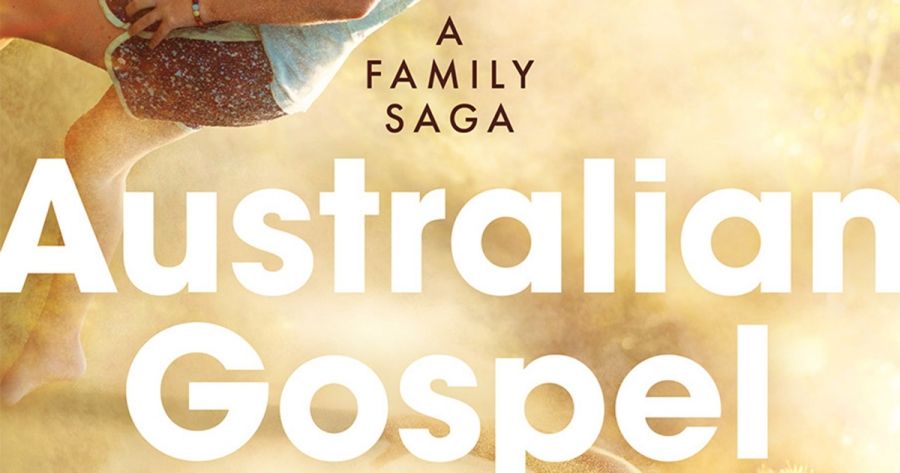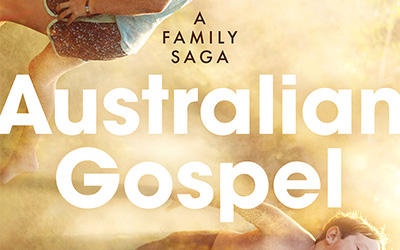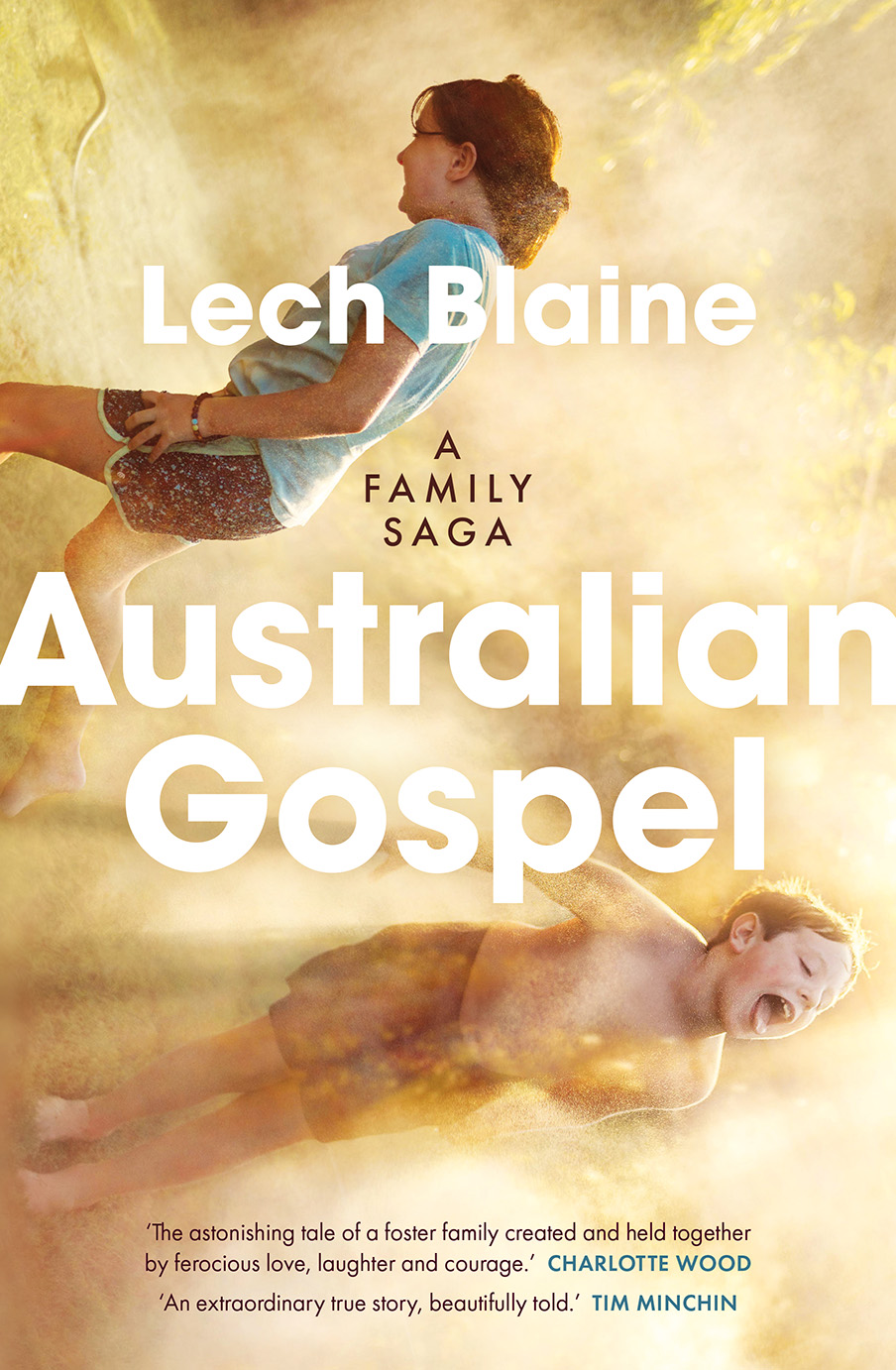
- Free Article: No
- Contents Category: Memoir
- Review Article: Yes
- Article Title: Double helix
- Article Subtitle: Childhood as a ‘biblical shitshow’
- Online Only: No
- Custom Highlight Text:
Lech Blaine. Lucky bastard. Great stories fall in his lap, like butterflies alighting on an open hand. All he has to do is write them up.
Oh, that it were so easy. Earning great material, in Blaine’s case, has meant more travails in three decades than some people endure in a lifetime. Surviving a horrific motor accident that claimed three young lives and profoundly damaged several others was grist for his first memoir, Car Crash (2021). The early death of his father, his mother’s decline through neurodegenerative illness, and managing a Bundaberg motel when his peers were attending university have produced compelling essays.
- Featured Image (400px * 250px):

- Alt Tag (Featured Image): Michael Winkler reviews ‘Australian Gospel: A family saga’ by Lech Blaine
- Book 1 Title: Australian Gospel
- Book 1 Subtitle: A family saga
- Book 1 Biblio: Black Inc., $36.99 pb, 363 pp
- Book 1 Cover Small (400 x 600):

- Book 1 Cover (800 x 1200):

- Book 1 Readings Link: https://www.readings.com.au/product/9781760643973/australian-gospel--lech-blaine--2024--9781760643973#rac:jokjjzr6ly9m
His latest and best work, Australian Gospel, delves further into ‘the biblical shitshow of my childhood’. Lech grew up with foster siblings who were pursued for years by their mad and arguably wicked biological parents, making life for the Blaine family a tumult of fear and uncertainty. Undergirded by years of research and written with conspicuous generosity, Australian Gospel presents the harrowing tale in thoughtful, straightforward prose.
The book begins with a kidnapping in 1983. Thereafter it is shaped like a double helix, paralleling the experiences of the Blaine household with the chaotic lives of Michael and Mary Shelley. The Shelleys are fanatical non-conformist Christians. Michael believes he is the repository of unique wisdom bestowed by God. Mary has a child from a prior relationship with actor Lionel Long, and three children with Michael. All four are removed due to neglect. The younger three are placed as foster children with knockabout Queensland couple Tom and Lenore Blaine. The Shelleys, determined to regain their children, embark on a remorseless campaign of lies, harassment, attempted kidnapping, and vituperation.
The author plays fair (‘I have tried not to treat the perspective of the Blaines … as the only correct one’), but it reads like a morality play, good versus evil. Michael Shelley is a rich kid from Sydney whose first girlfriend was Jacki Weaver. He is intellectually brilliant, resourceful, charismatic, self-disciplined, and utterly insufferable. Mary is blindly obedient to her husband after their ‘new-age curiosity about the scriptures snowballed into a folie à deux.’
Michael’s antipode is Tom Blaine, an obese, sports-obsessed, working-class publican from Queensland who loathes authority. Tom’s trump is his wife, Lenore, a woman of rare courage and compassion. An abortion renders her (seemingly) infertile, so at twenty-nine she becomes a foster parent, writing in her journal: ‘The love that organically develops between a foster child and a foster mother is priceless, because it is not payback for a biological debt.’
The Shelleys are outraged that their children are being brought up around sport, booze, and bad food. Lech says that Michael regarded Tom as an Australian Satan. Tom is an atheist. ‘On the off-chance that God existed, Tom wanted nothing to do with the prick.’ The axis of opposites is established: the irresistible force of Michael’s religious megalomania versus the immovable object of the Blaine family’s implacable care. Michael’s zealotry is matched by his cunning. He is, in his own way, utterly remarkable. By contrast, the bogan, brawling Blaines feel like an ur-family of the national mythos: Patrick White’s Parkers or Christina Stead’s Pollits, overlaid with humble heroism.
Blaine is an economical writer, but the relentlessness of the Shelley’s pursuit across a lengthy book is draining. I suspect this is the point: the Blaine family’s ordeal was long, and we experience a modicum of what that was like. Longitudinal books – think The Pilgrim’s Progress, for an exhausting example – can convey punishing interminability through their durational structure.
So much of the book seems improbable and would be tossed aside by editors if this were fiction. Even Lech’s birth is astounding, Lenore beating long odds to have a child in later life after a harrowing series of miscarriages. Equally unlikely is that the youngest Blaine child would be someone with the stamina and intellect to piece the narrative together and convince everyone involved that a story exposing their past should be told. The portraits of his siblings are frank, acute, and potentially painful. ‘None of them wanted to be painted as uncomplicated angels,’ Blaine notes.
I was put in mind of David Owen Kelly’s moving State of Origin (2019), which interrogates growing up as an adopted child in the Sunshine State, and the shifting relationships with his foster siblings. Both Kelly and Blaine write about Queenslanders of all stripes without looking down on them. For Blaine, this was instilled from the cradle. ‘[Tom and Lenore] believed that a society was judged by its treatment of the downtrodden. This was their God: egalitarianism.’
Australian Gospel raises uncomfortable questions about the tolerance of difference in a pluralist society. How much licence should be afforded religion-inflected child rearing practices? At the recent Queensland election, Katter’s Australian Party campaigned for increased corporal punishment (especially delivered by parents) for misbehaving children. ‘It’s not for the government to prescribe how [parents] should be disciplining their kids,’ leader Robbie Katter said. ‘They don’t need to be double-thinking that they could be reported to child safety.’ Under this approach, the successfully fostered siblings could have remained with the Shelleys, a deeply troubling scenario.
When I was a teenager, a radical Christian family plus acolytes moved to the fringes of my country town. The children, talented in art and athletics, were in complete thrall to their father. After they moved on, their notoriety increased as their stunts became more dangerous, including a walk across the Nullarbor. They were later dubbed the ‘Kidney Cult’ and pursued by Jon Ronson. My recollection is that townsfolk treated them with sceptical politeness rather than active hostility. Were those children in danger? Should locals have intervened? It depends on where you draw the line.
Call it laid-back or morally lazy, this Australian reluctance to get involved enabled Michael Shelley to repeatedly slide through the net. My Old Testament desire while reading Australian Gospel was that someone would knock Shelley off and put everyone out of their misery. By contrast, the staggering generosity in the last sentence of the following quote suggests that Lech may have inherited his mother’s fundamental goodness:
‘We felt as if Michael and Mary could hear our thoughts. The Shelleys seemed almighty, more like gods than human beings. Their paranoia was contagious. We were incapable of seeing their frailties or feeling their pains.’
The book’s second epigraph is from Mary Shelley, author of Frankenstein (no relation): ‘If I cannot inspire love, I will cause fear.’ Blaine quotes extensively from the ranting letters and emails written by both Shelleys, especially Michael. A kind heart might find frailty and pain there, but they are condemned by their own vicious words.
Blaine’s book details the damage wrought generationally by trauma and abuse. It captures the way fear reverberates; Shelley could terrify his children and others even when he wasn’t in the same country. The book also shows a triumph of love. The bottomlessness of the Blaines’ compassion and forbearance – not just sainted Lenore, but bolshie Tom and the siblings as well – made this flinty-hearted reader emotional.
A solitary grizzle: book production costs are high, but a work of this significance and popular appeal should provide photographs. It is to be hoped that the inevitable second and sub-sequent editions will remedy this oversight.


Comments powered by CComment